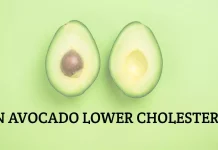Hey there, curious minds! Have you ever wondered if there’s such a thing as too many eggs? We all know eggs are a breakfast favorite and a versatile ingredient, but can go overboard with our egg intake affect our health? Today, we’re diving into the world of eggs and their impact on our well-being. Get ready to crack open the truth as we explore the real story behind excessive egg consumption, minus the complicated jargon.
Can Excessive Egg Consumption Impact Health?
Eggs, those versatile little powerhouses of nutrition, have long been a staple of our diets. Whether poached, scrambled, or nestled into a breakfast burrito, they’ve earned their place on our plates. But, like any good thing, can you have too much of it? Let’s dive into the world of eggs and explore whether excessive egg consumption can impact your health.
The Nutritional Marvel of Eggs
Eggs are a primary source of high-quality protein, providing the vital amino acids necessary for growth, repair, and overall well-being. Not to mention, eggs deliver a healthy dose of vitamins like B12, riboflavin, and folate, along with minerals such as iron and selenium. They even come with antioxidants lutein and zeaxanthin, promoting eye health.
The Balance Conundrum
While eggs bring a nutritional bonanza, consuming too much can tip the balance in unforeseen ways. High egg intake might lead to elevated dietary cholesterol, raising concerns about its impact on heart health. The connection between dietary cholesterol and blood cholesterol levels isn’t as straightforward as once believed, but moderation remains vital. It’s like adding too much spice to a dish – a pinch is glorious, but an excessive amount might overpower the flavors.
The Heart Health Debate
Now, let’s address the heart of the matter – heart health. Eggs have been at the center of debates regarding their potential influence on heart disease. While research has evolved over the years, it’s generally agreed that for most people, moderate egg consumption (about one egg per day) isn’t likely to impact heart health. However, if you’re already at risk of heart disease or have certain conditions, it’s wise to consult your healthcare provider to find the right balance for you.
Other Considerations
It’s essential to remember that health isn’t just about cholesterol. Factors like overall diet, physical activity, and genetics play crucial roles. Overindulging in any one food, even something as nutrient-rich as eggs, could lead to an unbalanced diet. Variety remains the solution to getting a spectrum of nutrients our body needs to thrive.
Finding Your Sunny-Side Balance
So, what’s the verdict? Like so many things in life, moderation is key. Enjoy your eggs, but aim for a balanced diet that includes a variety of nutrient sources. It is preferable to have a conversation with a healthcare professional if you have concerns about cholesterol or specific health conditions. Remember, cracking the code to better health isn’t about excluding eggs; it’s about savoring them as part of a well-rounded menu.
The question isn’t whether excessive egg consumption can impact health – it’s about recognizing that anything in excess might have consequences. So, crack that egg with confidence, embrace the sunny side of moderation, and keep your health journey as diverse and vibrant as the colors of a farmer’s market.
Conclusion
So, there you have it, egg enthusiasts! We’ve peeled back the layers and the effects of indulging in too many eggs. While eggs are undeniably packed with nutrients and can be a delicious addition to our meals, moderation is key. Ensuring a well-rounded diet by incorporating a variety of nutritious foods alongside your egg intake is a reliable approach to maximizing the benefits of this remarkable ingredient while safeguarding your health. When it comes to eggs, cracking the code to better well-being is all about finding that perfect balance. Stay curious, stay healthy, and keep those egg pans sizzling!
Frequently Asked Questions (FAQs)
How many eggs can I safely consume in a week without negatively affecting my health?
Generally, most individuals can enjoy up to seven eggs per week as part of a balanced diet without significant health concerns. However, it’s essential to consider your overall dietary habits, health conditions, and consultation with a healthcare professional.
Are egg whites a healthier option compared to whole eggs when it comes to cholesterol?
Egg whites are unquestionably lower in cholesterol and calories than whole eggs, presenting a favorable choice for individuals mindful of their cholesterol intake. However, the yolk contains essential nutrients like vitamins and minerals, so moderation is key.
Can I continue eating eggs if I have high cholesterol or heart disease?
If you have high cholesterol or existing heart disease, it’s advisable to consult a healthcare provider. In many cases, moderate egg consumption can still be a part of a heart-healthy diet, but individual recommendations may vary based on your specific health circumstances.
Can children safely consume eggs daily, or should their intake be limited?
Eggs are an excellent source of nutrients for children, but like with any food, moderation is the key. Children can usually enjoy eggs as part of a balanced diet, but it’s essential to ensure they get a diverse range of foods for overall health and development.
Are there any potential benefits of consuming eggs in moderation?
Absolutely! Eggs provide high-quality protein, essential vitamins, and minerals that support various bodily functions. They’re particularly beneficial for eye health due to the presence of lutein and zeaxanthin, which are antioxidants that may reduce the risk of age-related macular degeneration.










